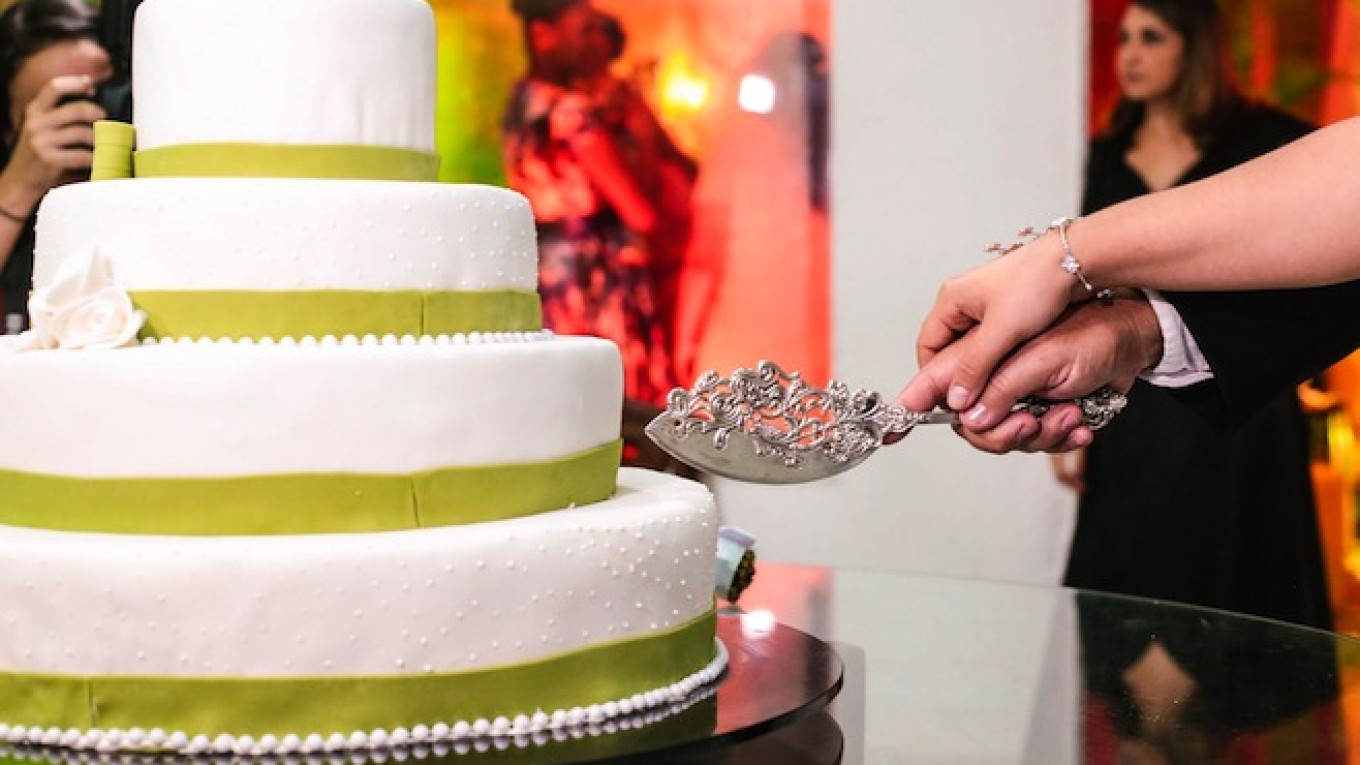Shooting, cake-cutting and indecent dance moves have been outlawed at “traditional weddings” in Grozny, the capital of Russia's Chechen republic, as part of efforts to safeguard the spiritual and moral development of the republic's young people.
A list of acts that will henceforth be banned at “traditional Chechen weddings” was published by Grozny City Hall's culture department this week.
It dictates that guests will no longer be able to show up drunk or dressed “in a way that does not conform with the Chechen mentality.”
“Indecent” or “acrobatic” moves on the dance floor are prohibited, and dance partners are forbidden from moving closer than an arm's length away from one another. Guests can only dance at the invitation of the master of ceremonies, while the bride is banned from dancing at all.
It was not immediately clear who would decide when weddings are “traditional” or whether the new rules would simply apply to all weddings in Grozny.
“Shooting from any kind of weapon” — a popular tradition at weddings in the Caucasus —is not tolerated. Less explicable is a ban on cutting the wedding cake.
According to the document, wedding hosts must “severely suppress” any violations of the rules, and if things nonetheless get out of hand, organizers are required to summon the police — though it was not immediately clear what action police would take, since many of the new rules contradict Russian law.
The moves are designed to safeguard traditional culture in the majority-Muslim North Caucasus republic — particularly for the younger generation, according to the list. Its publication comes after Chechnya's notoriously outspoken leader Ramzan Kadyrov last week called on wedding dress shops to stop selling too-revealing, “European” dresses that he said had become fashionable and were undermining the republic's traditions.
A Message from The Moscow Times:
Dear readers,
We are facing unprecedented challenges. Russia's Prosecutor General's Office has designated The Moscow Times as an "undesirable" organization, criminalizing our work and putting our staff at risk of prosecution. This follows our earlier unjust labeling as a "foreign agent."
These actions are direct attempts to silence independent journalism in Russia. The authorities claim our work "discredits the decisions of the Russian leadership." We see things differently: we strive to provide accurate, unbiased reporting on Russia.
We, the journalists of The Moscow Times, refuse to be silenced. But to continue our work, we need your help.
Your support, no matter how small, makes a world of difference. If you can, please support us monthly starting from just $2. It's quick to set up, and every contribution makes a significant impact.
By supporting The Moscow Times, you're defending open, independent journalism in the face of repression. Thank you for standing with us.
Remind me later.


